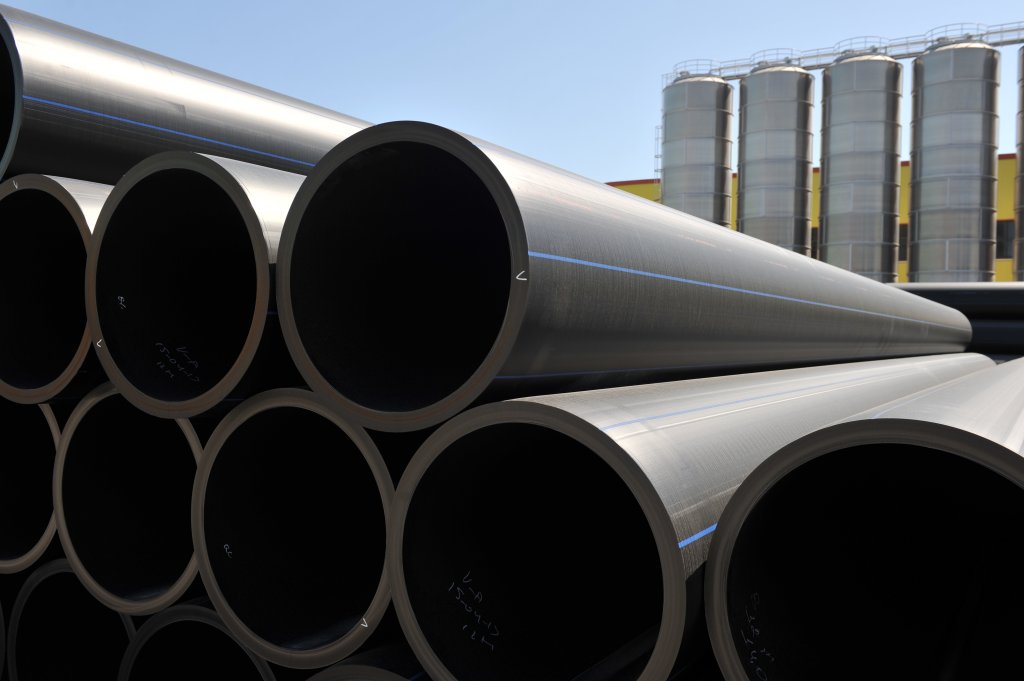American Plastics HDPE Pipe for Oilfield: Strength in Harsh Environments
Wiki Article
Understanding the Key Conveniences of HDPE Pipeline for Water and Wastewater Management
The usage of HDPE pipe in water and wastewater administration presents many advantages that warrant consideration. Its outstanding toughness and long life expectancy make it a favored option for several jobs. Furthermore, the product's resistance to rust and chemical damage boosts its integrity in different environments. The benefits extend beyond just durability and resistance. Midland TX HDPE Pipe Fittings in Stock. Exploring its cost-effectiveness and ecological impact reveals a lot more engaging factors for its widespread adoption in contemporary infrastructureExtraordinary Sturdiness and Durability

HDPE pipe stands out for its extraordinary sturdiness and durability, making it a favored choice in water management systems. Built from high-density polyethylene, these pipelines can stand up to substantial stress and tension, making certain dependable efficiency gradually. Their durable nature permits them to sustain severe ecological conditions, consisting of temperature changes and dirt activities, which can cause other materials to fail.
The life expectancy of HDPE pipes often exceeds 50 years, providing an economical solution for communities and industries alike. In addition, the product's lightweight homes simplify setup, reducing labor expenses and durations. This toughness reduces the need for constant repairs or substitutes, even more enhancing its financial appeal.
In water monitoring applications, the integrity of HDPE pipelines suggests less interruptions and boosted solution connection, making them integral to lasting framework development. The combination of durability and durability strengthens HDPE's role as a foundation in reliable water monitoring options.

Resistance to Corrosion and Chemical Damages
While lots of materials yield to corrosion and chemical damages over time, HDPE pipelines exhibit impressive resistance, making them suitable for different water monitoring applications. This durability stems from the molecular framework of high-density polyethylene, which is inherently non-reactive and does not corrode like steels or deteriorate from exposure to harsh chemicals. As an outcome, HDPE is extremely reliable in atmospheres with aggressive compounds, such as wastewater systems that might include acids, bases, and natural solvents.
Additionally, HDPE pipelines can withstand ecological variables such as dirt acidity and saline problems, further boosting their viability for varied applications (Pipe Supplier American Plastics Midland). Their capacity to keep structural honesty with time lowers the threat of leakages and failings, which is important in making certain the safety and reliability of water distribution and wastewater management systems. As a result, the resistance to corrosion and chemical damage markedly adds to the overall efficiency and longevity of HDPE piping services
Cost-Effectiveness and Financial Advantages
When thinking about the financial effects of water monitoring systems, the cost-effectiveness of HDPE pipes becomes obvious. These pipes provide reduced installation and maintenance prices contrasted to conventional materials like steel or concrete. Their lightweight nature streamlines transport and setup, causing minimized labor costs. Additionally, HDPE pipes display a lengthy life-span, often going beyond 50 years, which converts to fewer substitutes and long-lasting savings.In addition, the resistance of HDPE to rust and chemical damages reduces the requirement for costly fixings and replacements. The pipes additionally support effective water circulation, minimizing power costs connected with pumping systems. By minimizing leaks and water loss, HDPE pipelines add to significant economic benefits for districts and industries alike. On the whole, the initial financial investment in HDPE piping can yield considerable economic returns over the lifespan of the water administration system, making it a prudent option for lasting infrastructure advancement.
Ecological Sustainability and Lowered Impact

Convenience and Adaptability in Setup
Due to their one-of-a-kind residential properties, HDPE pipes offer remarkable flexibility and adaptability in setup, making them ideal for a vast array of applications. Their light-weight nature permits for simpler handling and transport, decreasing labor prices and installment time. HDPE pipelines can be bent and shaped to fit various terrains and task demands, which is especially useful in challenging atmospheres.Furthermore, their resistance to corrosion and chemical damages enables setup in diverse settings without the need for specialized safety coverings. The capacity to fuse joints produces a continuous, leak-free system, enhancing the overall integrity and dependability see this site of the installment. HDPE's flexibility likewise accommodates ground motion, decreasing the danger of damages in areas vulnerable to changing dirt. On the whole, these qualities make HDPE pipes not just functional yet also a favored choice for water and wastewater management systems.
Regularly Asked Concerns
have a peek hereHow Does HDPE Pipe Contrast to PVC in Water Administration Applications?
HDPE pipe uses remarkable versatility, resistance to deterioration, and toughness contrasted to PVC. Its lighter weight assists in easier setup, while its lengthy lifespan decreases replacement prices, making HDPE a recommended option in water monitoring applications.What Is the Life-span of HDPE Piping Under Common Conditions?
Under typical problems, HDPE pipelines can have a lifespan varying from 50 to 100 years. Their sturdiness and resistance to corrosion contribute to their lasting performance in different applications, making them a reliable option for infrastructure.Are HDPE Piping Recyclable After Their Solution Life?
Yes, HDPE pipes are recyclable after their service life. Pipe Manufacturing Midland TX. They can be processed and repurposed right into new products, greatly minimizing ecological influence and promoting sustainability within the sector, making them an environment-friendly choice for piping servicesWhat Is the Installment Process for HDPE Piping?
The setup procedure for HDPE pipelines entails website prep work, trenching, pipe blend or mechanical signing up with, backfilling, and pressure screening. Correct strategies assure a resilient and effective system for moving water and wastewater effectively.Can HDPE Piping Be Made Use Of for Both Drinkable and Non-Potable Water Equipments?
Yes, HDPE pipes can be made use of for both safe and clean and non-potable water systems. Their adaptability, resilience, and resistance to deterioration make them suitable for different applications, guaranteeing safe and reliable transport of water in various contexts.Report this wiki page